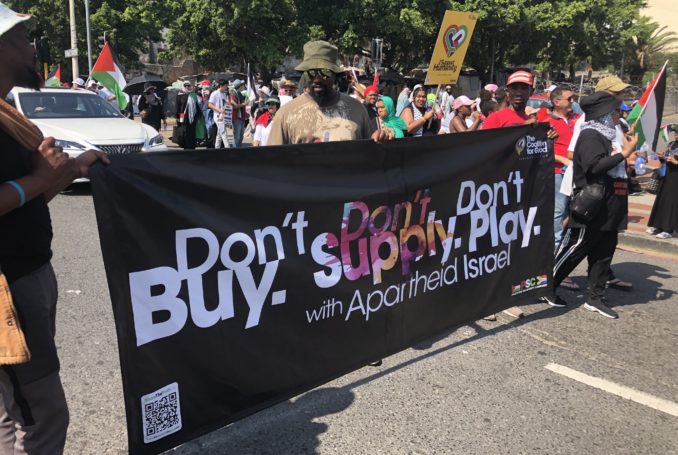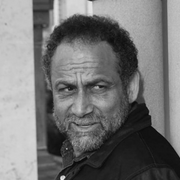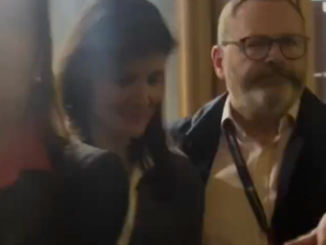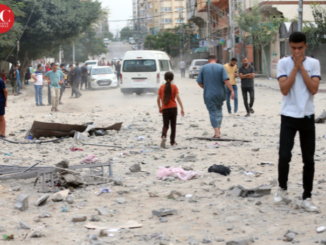
By Haidar Eid 
Nobody can prevent the BDS movement from expressing principled criticism of any form of normalization with apartheid Israel.
Sometimes, criticism, both constructive and destructive, is directed at the BDS movement, particularly the Palestinian Campaign for the Academic and Cultural Boycott of Israel (PACBI). The accusations have ranged from labeling the campaign as “authoritarian” to claiming that it “lacks a strategic dimension”.
However, the Boycott National Committee has always welcomed anything that would expand the scope of the dialogue in Palestinian society on what criteria, principles, and strategies should be employed in the boycott of Israel. Many Palestinian activists, intellectuals, and artists have consistently and actively participated in the numerous meetings in which the boycott criteria were developed.
Many of them expressed their opinions and offered constructive criticism, rather than resorting to the kind of destructive attacks that reflect a lack of knowledge and understanding of the movement’s development and achievements.
It goes without saying that the circumstances, and consequently the criteria for boycott, vary from one location to another. For example, there are different strategies used in 1948 Palestine, 1967 Occupied Palestine, the Arab world, and globally. This takes into account the specific context of each location and ensures sustainability and effectiveness.
However, the basic logic of the boycott movement remains the same: activating and strengthening all available forms of pressure on Israel and the institutions and companies that support its multi-faceted oppression of the Palestinian people. This aims to restore our people’s basic rights, most importantly, liberation, the return of refugees, and the exercise of our inalienable right to self-determination.
From this perspective, boycotting Israel is a key strategy in our resistance to Israeli occupation and apartheid. The Boycott, Divestment and Sanctions Movement aims to isolate Israel internationally and resist it domestically and within the Arab world. The goal is to alter the balance of power in favor of our people and our struggle for our fundamental rights.
This cannot be achieved without breaking dependency on Israeli products, targeting normalization of relations with Israel in all its forms, and committing intellectuals and artists, above all others, to severing all voluntary ties that contribute– regardless of their intentions, — to strengthening Israeli hegemony and the image of “normalcy” that Israel promotes internationally.
Since 1993, various forms of cultural and academic normalization projects have been carried out under the guise of “understanding the other” or “convincing Israeli public opinion of our rights.” However, the experiences of many participants in these dialogues and programs confirm that joint projects were not merely “useless” to our struggle; rather, they played a significant role in creating an international impression that Israel was seriously seeking peace. In fact, they weakened Palestine’s attempts to boycott Israel both internationally and in the Arab world.
Israel egregiously used these normalization projects to whitewash its criminal past before the world and to promote a false image of itself as a democratic and normal state. The normalization projects were also pointless in another way – they failed to pressure the Israelis who participated in them to take action against Israeli political and military institutions, instead providing them with a false sense of self-satisfaction that they were confronting the occupation simply by meeting with their Palestinian counterparts and engaging in “dialogue” about common issues while avoiding “unconstructive” talk about justice and the rights of the Palestinian people.
Some forget, or rather pretend to forget, that the BDS National Committee emerged from the first Palestinian National Conference of the Boycott, Divestment, and Sanctions (BDS) movement in 2007. This national committee has since become the global leader of the boycott movement. It is composed of major popular forces and unions (workers, women, writers, farmers, academics, students, etc.), all trade union federations, the Global Coalition for the Right of Return (the largest coalition defending refugee rights), The Palestinian Nongovernmental Network, networks of other civil society organizations, and other important and largest frameworks representing all sectors of our people inside Palestine and in the diaspora.
It is by far the largest Palestinian coalition. While it does not represent our Palestinian people politically, it can certainly speak on their behalf about the common goals of Palestinians: ending the occupation, ending apartheid, and the right of return of all Palestinian refugees to their cities, towns, and villages.
In this context, we must emphasize the fact that the existence and continuity of civil society under occupation is part and parcel of the existence and continuity of the Palestinian people itself, and therefore, it largely represents the views of Palestinians. The resistance tools developed by civil society are thus an integral part of this people’s struggle.
So to those who say that civil society and the BDS National Committee do not represent the views of Palestinians, we must ask: Who has more credibility in developing the guidelines for boycotting Israel: the coalition of most of the Palestinian forces, institutions, unions, and frameworks of Palestinian society, both in the homeland and in the diaspora, or an individual intellectual, whether in the homeland or in the diaspora? Is it better for each of us to set our own, naturally biased, criteria for the boycott? How would this work in practice?
Rejecting the idea of collectively agreed principles in resolving differences and insisting on each individual’s reference is tantamount to rejecting the idea of all collective resistance to occupation and apartheid. It would amount to rejecting the foundations of community action for liberation and progress—politically, socially, and culturally.
As for the commitment to implementing various forms of boycott, this campaign, like any other resistance tool, requires time, effort, dialogue, persuasion, occasional correction, and continuous development to establish its roots and create an actual accumulation of tangible results.
Popular support for the boycott of Israel is evident not only by the public support of the overwhelming majority of our people, but also in the decline of the phenomenon of cultural and academic normalization. The number of Palestinians who are willing to work on joint academic and cultural projects with Israelis has dwindled to a very small group, almost isolated from the public.
The support for the Palestinian boycott of Israel is also evident in the rapidly growing involvement of a growing number of our people who demand that the world boycott Israel in various fields, and in the joy of broad sectors of our people, particularly expressed on social media, whenever we succeed in thwarting an Israeli activity. For example, the refusal of an international writer to have her book published by an Israeli publishing house, or the cancellation of an international director’s participation in an Israeli film festival.
Any researcher of the Boycott, Divestment, and Sanctions (BDS) movement’s history since 2005 can easily understand the distinct collective nature of the movement’s mechanism of action. The only force it possesses to confront normalization and impose isolation on Israel is the moral force stemming from a conviction to disengage from the apartheid, settler-colonial state and all its institutions.
Certainly, no individual, institution, or even a broad coalition of societal frameworks can “force” anyone to adhere to the boycott standards. Nor can anyone necessarily deny the right of our people to develop creative collective resistance strategies, including the BDS movement. This, too, is part of exercising individual freedom, as is a duty under the colonial oppression of our people.
Nobody can prevent the BDS movement from expressing principled criticism of any form of normalization with apartheid Israel. It is important to note that despite its widespread popularity, the BDS movement has not and will not appoint itself as the guardian of anyone’s nationalism. The movement’s members are volunteers and activists in the resistance against apartheid, nothing more.
The largest civil society organizations and institutions agreed to activate the boycott through a set of guidelines aimed at creating an acceptable and realistic common denominator for Palestinians to adhere to as a means of pressuring Israel.
The BDS movement’s role is to disseminate these guidelines, respond to inquiries from the public and global partners about boycott, divestment, and sanctions, and confront attempts to stop and undermine the boycott, whether these attempts are made by Palestinians, Arabs, or international actors. This should be done in an ethical manner, always based on published collective standards, not on the individual opinions and feelings of this or that activist.
The movement always receives many inquiries from artists, intellectuals, academics, students, and business professionals, as well as from various institutions, about the boycott guidelines and their interpretations in the context of specific projects. This reflects a significant number of people’s respect for these guidelines and the authority of the National BDS Committee, including the Academic and Cultural Boycott Campaign.
The BDS movement strives to expand the circle of Palestinian, Arab, and international support for boycotting the apartheid and genocidal system in all areas, to contribute to achieving our rights without prejudice. The vast majority of Palestinian writers, artists, and academics, as well as a large number of their international counterparts, stand with this movement.
Hence, in light of the unprecedented war of extermination against our people in the steadfast Gaza Strip, the need to strengthen the broad Palestinian and Arab public support for the boycott and its standards has grown. The need has also increased for all conscientious intellectuals and artists to participate in spreading the culture of the boycott and in actively and positively continually developing the boycott guidelines to keep pace with the changing reality and the goal of achieving freedom and justice.

– Haidar Eid is an Associate Professor in the Department of English Literature at the Al-Aqsa University, in the Gaza Strip. He is a research associate at the Center for Asian Studies in Africa at the University of Pretoria. He contributed this article to The Palestine Chronicle.








Be the first to comment